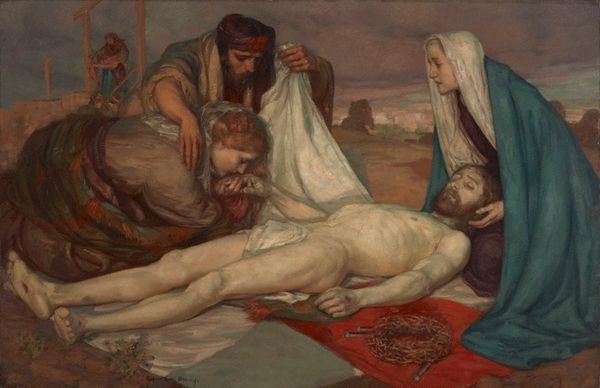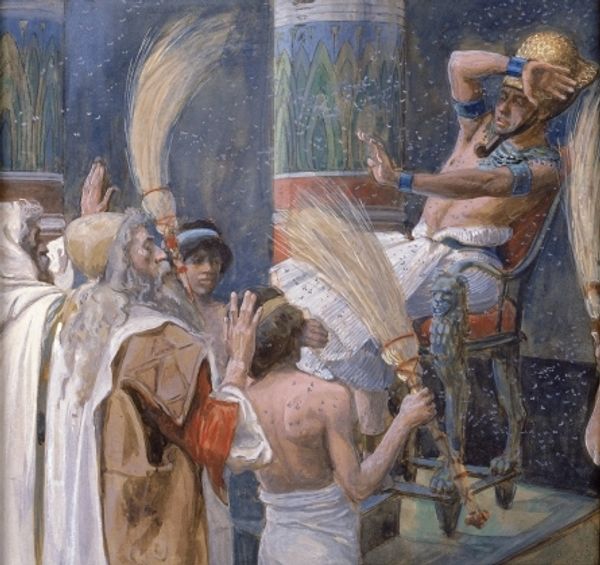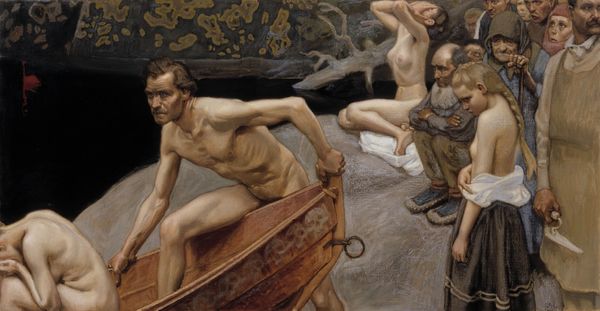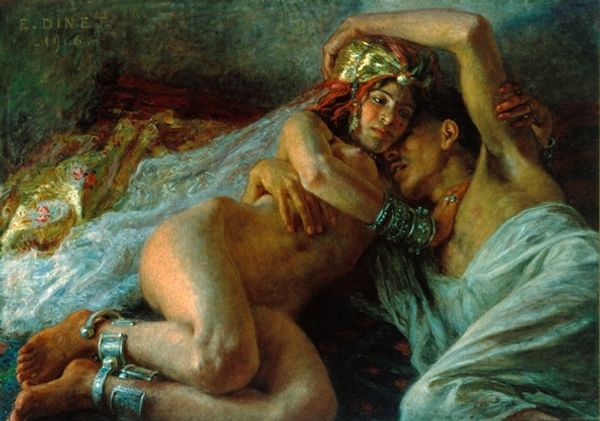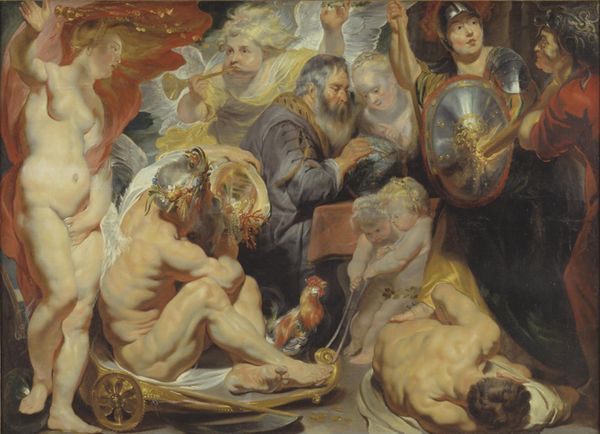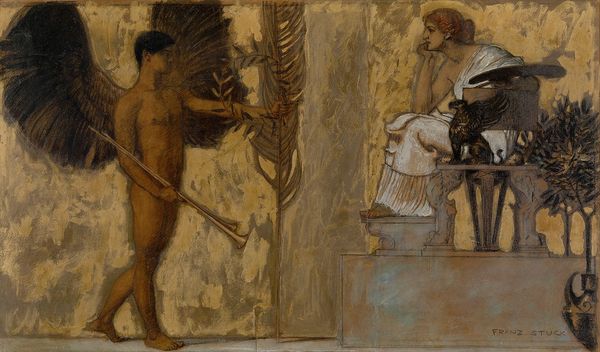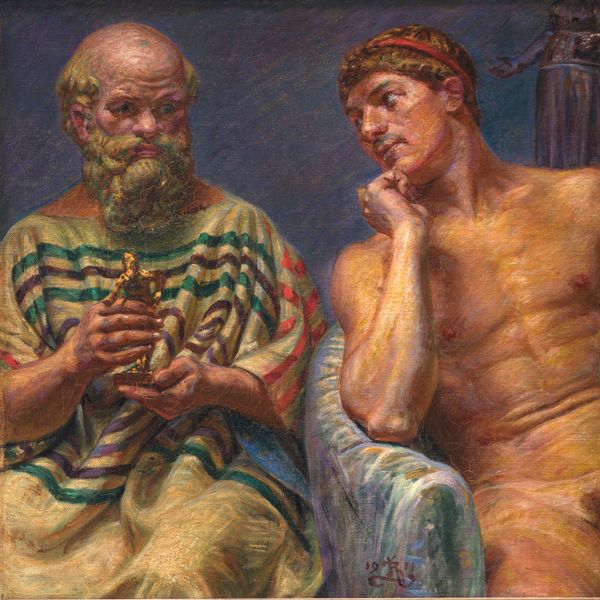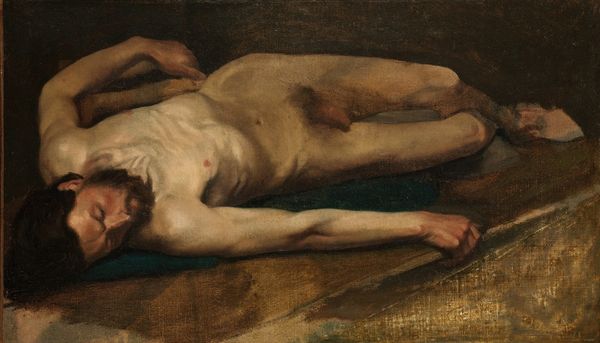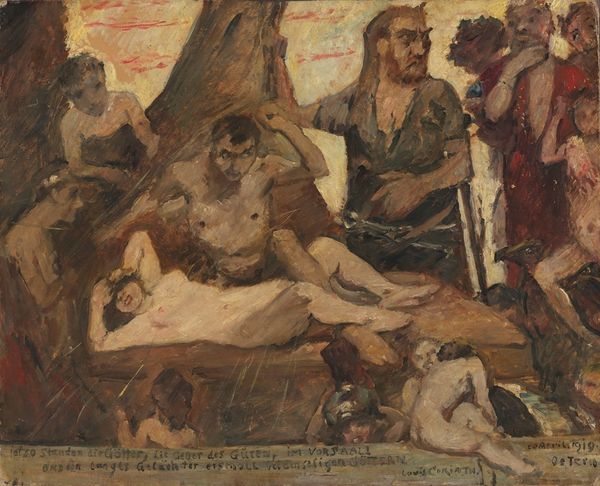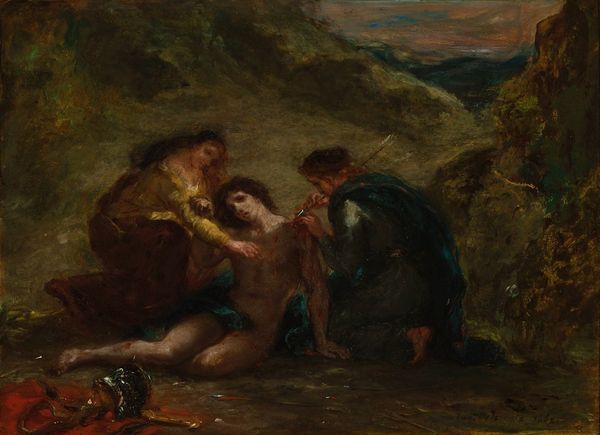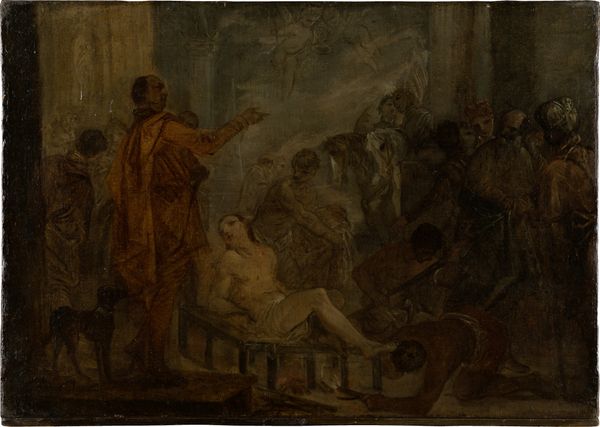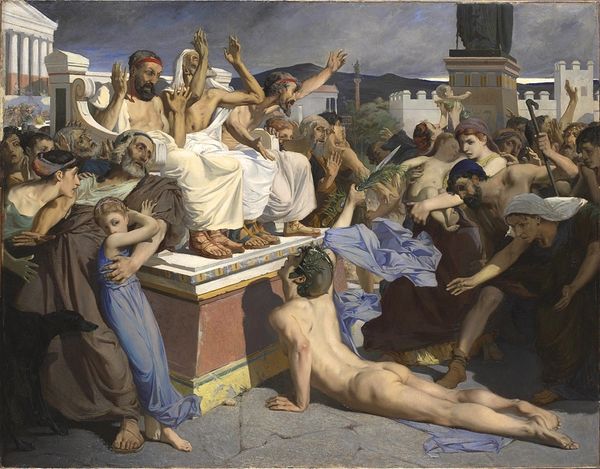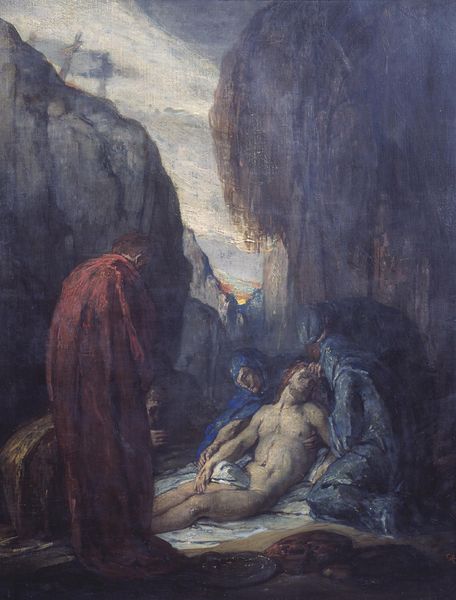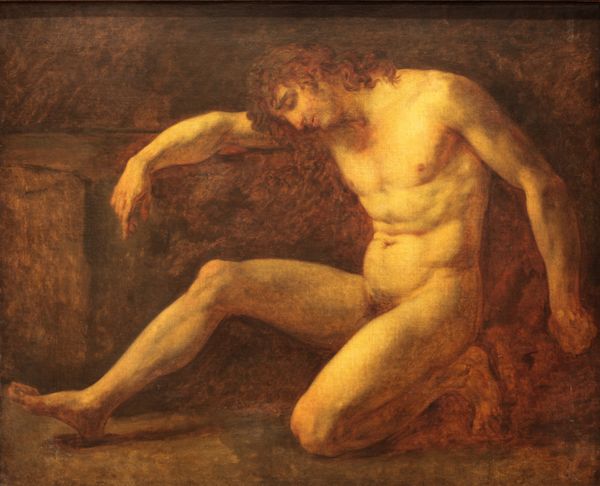
painting, oil-paint, canvas
#
portrait
#
painting
#
oil-paint
#
oil painting
#
canvas
#
genre-painting
#
academic-art
Dimensions: 110 cm (height) x 175 cm (width) (Netto), 150.8 cm (height) x 217 cm (width) x 8.3 cm (depth) (Brutto)
Kristian Zahrtmann created this painting of Job and his friends using oil on canvas. Here, the artist has adopted a muted palette, with varied brushstrokes to create a rich surface texture, and through these careful applications, the weight of despair seems to hang palpably in the air. The raw, almost visceral quality of the medium lends itself well to the depiction of human suffering. Look closely, and you'll notice the care taken in rendering the figures and their surroundings. The coarse fabric of their garments, the straw bedding, and the somber faces of Job's companions are all rendered with attention to detail. This is an academic style of painting, yet rooted in a deep understanding of craft traditions. Ultimately, the effectiveness of Zahrtmann's painting lies not only in its technical skill but also in its ability to evoke a sense of empathy and contemplation, blurring the lines between fine art and craft.
Comments
statensmuseumforkunst about 2 years ago
⋮
The Book of Job relates the story of how Satan destroys Job’s property and family and subjects him to painful illness to test his faith. Zahrtmann depicts Job in the company of friends who remain impassive as he curses God and the cruel injustice and senselessness of his suffering. Zahrtmann’s history painting is always tinted by his personal preferences and preoccupations. He was presumably gay, the mother figure was regularly debated in his work, and he engaged in an ambiguous revolt against traditions. Even so, the themes he addressed cannot be reduced to being merely personal in scope. The jar hiding Job’s sex may be a symbol of woman-as-mother. The “mother” can be read as morality carrying out an act of castration. If Job is also Zahrtmann we may read this as his erotic urges being blocked.
Join the conversation
Join millions of artists and users on Artera today and experience the ultimate creative platform.
